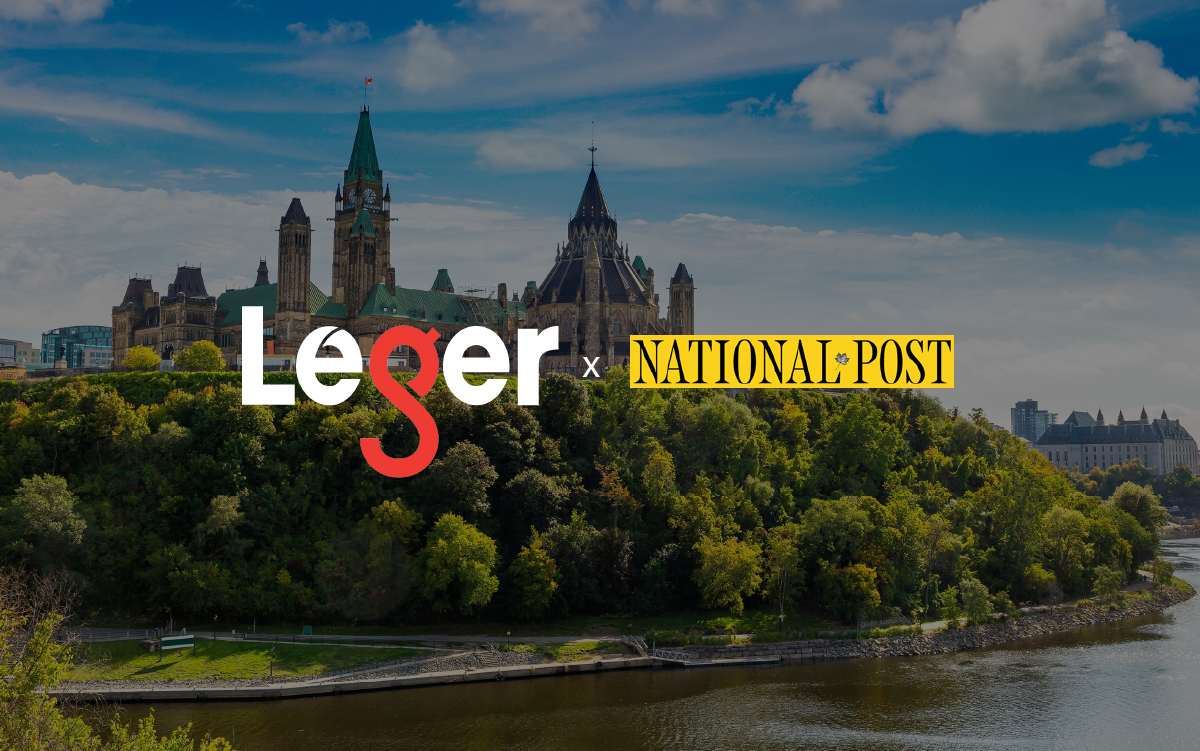Every month, we conduct a survey of Canadians to explore their views on the current government. This month, our survey was conducted between May 24 and 26, 2024.
Some of the key highlights of our survey about Canadian federal politics include…
- Pierre Poilievre’s Conservative Party remains in the lead, 19 points ahead of Justin Trudeau’s Liberal Party. If a federal election were to be held today, 42% of Canadians would vote for the Conservative Party of Canada, while 23% would vote for Justin Trudeau’s Liberal Party.
- Almost one-third of Canadians think Pierre Poilievre is the leader who would make the best Prime Minister among the federal party leaders (28%), ahead of Justin Trudeau (16%) and Jagmeet Singh (16%). Pierre Poilievre has experienced a decrease of four points compared to last month.
- Two-thirds of Canadians (66%) are dissatisfied with Trudeau’s government, compared to only one-quarter (27%) who are satisfied.
- Regarding the reasons why Justin Trudeau wishes to remain Prime Minister and leader of the Liberal Party, almost half of Canadians (47%) think that it is because he likes to be Prime Minister and does not want to leave, nearly one-quarter (23%) of Canadians think that it is because he has more policies he wants to implement, 18% think it is because there are not any suitable replacements for him, and 15% think it is because he wants to face Pierre Poilievre in the next election. Conservative voters (60%) are more likely to think that Justin Trudeau wishes to remain Prime Minister because he likes it. In contrast, Liberal voters are more likely to think that it is because he has more policies he wants to implement (45%), because he wants to face Poilievre (26%), or because he feels like there are no suitable replacements (26%).
Methodology
This web survey was conducted from May 24 to 26, 2024, with 1,620 Canadians aged 18 or older, randomly recruited from LEO’s online panel. A margin of error cannot be associated with a non-probability sample in a panel survey. For comparison, a probability sample of 1,620 respondents would have a margin of error of ±2.44%, 19 times out of 20.




